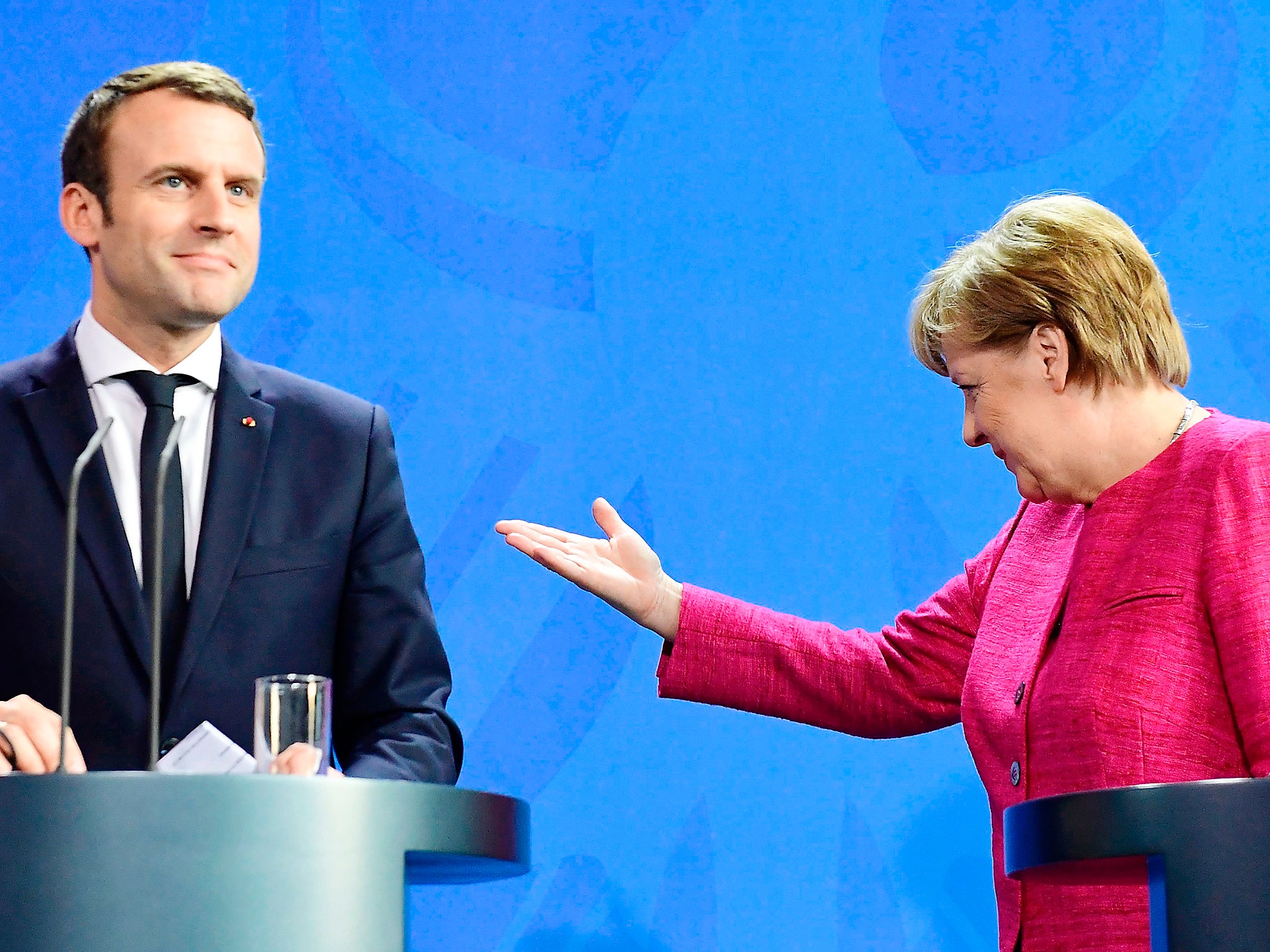This is what Emmanuel Macron's first Cabinet tells us about how the French President will govern
Everything Macron has said suggests that he is not interested in political tactics for their own sake, but because he wants to transform France into a model fusion of economic efficiency and social responsibility


Maybe it is all going to come apart for France’s youngest elected head of state between now and the second round of the legislative elections. And nothing would suit his variegated opponents more than a National Assembly with no majority for his new movement turned party, Republique En Marche, able to thwart his every move for change.
But don’t bet on it. After Emmanuel Macron announced the appointment of Edouard Philippe, the centre-right mayor of Le Havre, as his prime minister, one of those who might have laid claim to that job in a pre-Macron world accused the new President of not wanting “the parties to realign”, but to “dynamite them”.
“Dynamite them” is not an expression that fits comfortably into France’s hitherto rather undramatic political vocabulary. Still less might it be expected from the lips of Francois Baroin, a cautious centre-right politician who rose to prominence as the youthful spokesman of former prime minister Alain Juppe more than 20 years ago and subsequently the go-to politician for centre-right governments in urgent need of a safe ministerial pair of hands.
His reliability in a crisis is why, or partly why, Baroin now finds himself with the thankless task of running the centre-right Republican Party’s parliamentary campaign at a time when the party can no longer be sure of its moorings in French politics. Some Republican politicians have defected to Macron and his brand of centrism. Many more have insisted they will fight on as a concerted opposition. By persuading Philippe to head his government, however, Macron has cut some of the ground from beneath their feet. The centre right, like the centre left, and indeed the National Front of Marine Le Pen have all been left divided – perhaps fatally so – by Macron’s victory and uncertain about their response.

The onlookers’ consensus, following Philippe’s appointment, was that it was largely tactical, designed to sow disarray in the traditional parties on the eve of the parliamentary elections. And the impression was reinforced by the composition of the new government, which includes a broad representation of right and left, plus a scattering of non-politicians and a celebrity environmental campaigner whom previous governments had tried in vain to co-opt.
But there is more than tactics to what Macron is doing, and when Baroin talked about Macron “dynamiting” the old parties, he may have been closer to the whole truth than perhaps he knew.
Everything that Macron has said, and the whole way he has conducted himself since his election, suggests that he is not interested in tactics for their own sake, or even for the sake of maximising his new party’s representation in the new Parliament, but because he wants to transform France into a model fusion of economic efficiency and social responsibility.
Consider the 24-hour delay in announcing the new government. The reason given was that each new minister’s credentials (and tax position) had to be checked. The clear purpose was to pre-empt the sort of scandals that beset former President Francois Hollande’s government in its early days and the exposés about jobs for family members that blighted the presidential campaign of the Republican candidate, Francois Fillon. Each member of the government, Macron has stipulated, will have to sign an ethics commitment – and jobs for the family are ruled out.
This is not only sensible politics in the light of recent French political history, but it sends a forceful message in two directions: to the voters that the new President and his government are trying to be different, but also to the politician establishment, including MPs, that the old ways must come to an end.
Such an undertaking, of course, is only effective until the next scandal. But if the onus has shifted from the party machine to the individual politician and the expectation of voters, underwritten by the head of state, is that French politics from now must abide by certain rules, demands for a clean-up could filter down, eventually reaching even entrenched local fiefdoms. This in itself would be a considerable achievement – and inspire trepidation among many. But the extent to which Macron’s decisive victory, the failure of established parties and the proximity of the parliamentary elections have combined to produce a comprehensive meltdown of French politics can hardly be exaggerated.

It is true that the mainstream right in France has long taken a shifting shape, with party names changing and personal rivalries counting for almost as much as the politics. This presidential election, though, saw the rout of both mainstream left and right, and a weaker showing than many envisaged for the far-right National Front.
Even the proposition that a failed Macron presidency could bring a National Front victory next time around, however, is by no means certain. Le Pen may claim that her party now leads the only serious opposition to Macron, but her ambitious niece, Marion Marechal-Le Pen, resigned all her political offices within hours of Macron’s victory. We shall see what the legislative elections bring.
Partly because Macron’s party is so new, and partly because of the hostility of the mainstream, many are forecasting a divided National Assembly intent only on blocking anything that Macron wants to do. Whatever the make-up of the new parliament, however, this may not be the effect.
What is already apparent is that, for a good number of his 39 years, Macron has watched and learned. He knows about the pitfalls of “cohabitation”, when the President and the parliamentary majority are from different parties and perpetual disputes result. But his government is less party political than any of recent times. What he seems to be aiming for is a government of national unity, French-style, or what in Germany is called a “grand coalition”.
There are dangers here – that the dissatisfied move to the extremes – but opportunities, too. The UK’s coalition government avoided at least some of the traps of one-party government – not least, it could be argued, the EU referendum – because controversies were thrashed out in Cabinet. Angela Merkel, has by and large, been more successful as head of a grand coalition than of the centre and free-market right.
With his multi-party government, and its mixture of veterans and novices, Macron could perhaps use France’s generally weak parliament in a different way, seeking ad hoc coalitions for particular policies. Nor need this be a recipe for stalemate. It could finally breathe some life into a relationship between president, government and parliament that has rarely seemed to work.
Dynamiting, in other words, rather than realignment, could provide just the political shock that France – and not just France – needs.
Join our commenting forum
Join thought-provoking conversations, follow other Independent readers and see their replies
Comments
Bookmark popover
Removed from bookmarks